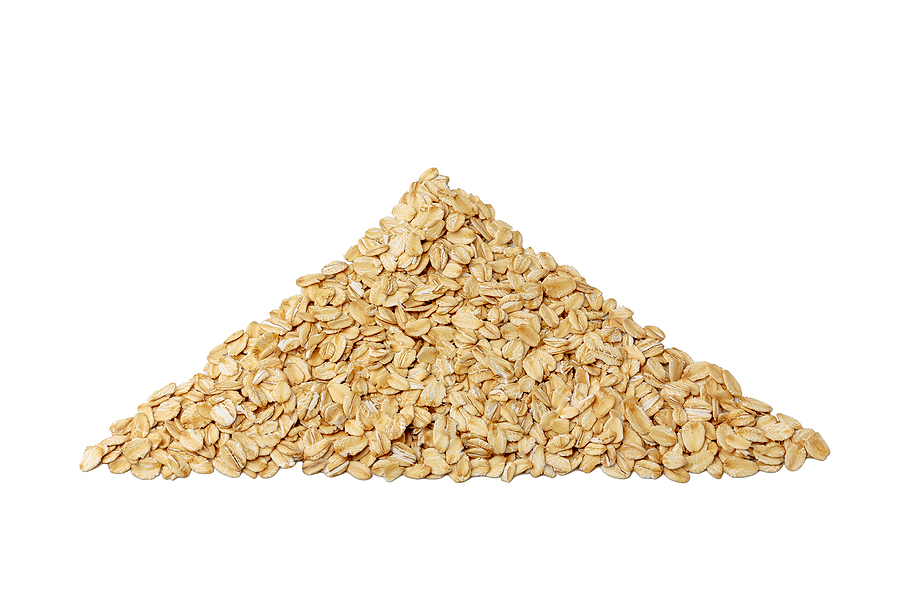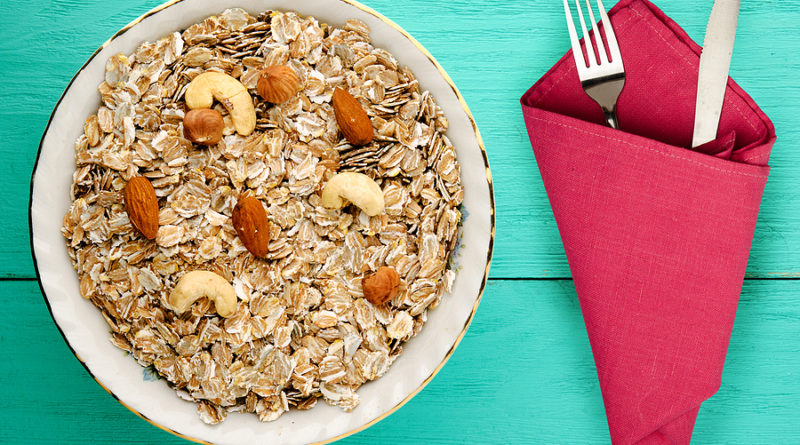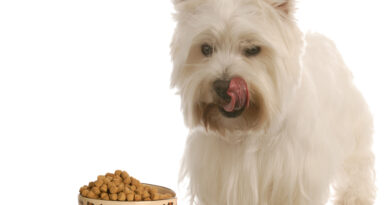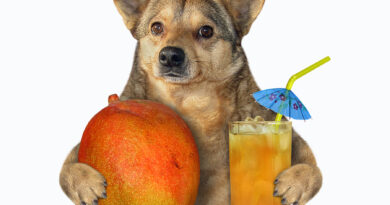Can Dogs Eat Oatmeal?
Featured image by © bigstockphoto.com / Vitalily73
Can Dogs Eat Oatmeal?
Let’s face it – oatmeal is one of the best ways for you to start your morning. The oat grains are rich in fiber, provide a great source of carbs, and usually keep you full until the next meal. So, if oats are tasty and nutritious, why not share oatmeal with your furry friend? Can dogs safely eat oatmeal?
The answer is yes, in moderation. But please read on as we explore the ins and outs of feeding oatmeal to your dog.
The Health Benefits of Oatmeal for Dogs
Oats are gluten-free grains and one of the best sources of vitamins, minerals, and antioxidants. Many studies show that oats are beneficial for both humans and dogs. All of the things that make oats delicious and healthy for humans make them good for your canine friend as well.
Oatmeal provides a healthy meal for dogs because it offers your puppy a wholesome snack that contains all the necessary nutrients without any toxic ingredients or additives that may harm your pet.
Serving oatmeal can also be a smart way for you to slip more water into your pet’s diet. Besides, oats can lower cholesterol levels and reduce the risk of high blood and heart diseases. Whole oats are rich in antioxidants, which, together with vitamin C, can prevent LDL cholesterol damage.
Can Oats Make Dogs Feel Sick?
Although oatmeal is replete with vitamins and healthy nutrients, feeding a dog too much may cause problems in your dog’s diet. Some dogs are allergic to whole oats and may struggle to digest the food, resulting in skin irritation or stomach inflammation.
Veterinarians say that excessive oatmeal can throw your dog’s diet off balance because of the high amount of fiber, causing digestive problems. Most dogs will be healthy if they consume a small portion of oats once or twice a week.

Does Dog Food Contains Oats?
A quick reading of the labels on numerous brands of dog food reveals oats as a common ingredient in dog foods. They are a primary component in some pet food diets – especially when combined with chicken or lamb.
Because eating oats can create a sensation of fullness in a dog’s stomach, dog food manufacturers label many oats-based dog foods as weight-loss foods. In one study comparing the fullness after dogs consumed various types of food, oats-based foods were in the third position, suggesting that oats might be an excellent option for pets that need to lose weight.
How to Feed Your Puppy Oatmeal?
When it comes to dog food and what’s right for your pet to eat, the key is to maintain a balance. The secret to ensuring that oatmeal remains a safe and healthy treat for your dog is to cook it perfectly. Here are a few tips to help you feed your dog delicious and well-cooked oatmeal.
Whole Grains
Serve your dog oatmeal made only from whole grains. Refined grains are less rich in vitamins and minerals and may upset your puppy’s stomach.
Avoid Additives or Seasonings
While you may enjoy your oatmeal with a lot of sugar, butter, cream, nuts, dried fruits, chocolate, or other toppings, keep it simple and plain for your dog. Avoid prepackaged, flavored oatmeals.
Some of those additives may be dangerous for your dog. For example, chocolate and raisins are toxic to dogs, and other commercially dried fruit may contain harmful chemicals. If you add anything, be sure it is safe for your dog.
Cook the Oatmeal
Some dog owners give their pets raw oats. However, it is better to cook the oatmeal before serving it to your dog. Like humans, dogs seem to prefer a warm and well-cooked meal.
Stick to small portions
Some prepackaged oatmeal mixes contain 150 calories per cup. That may not seem like a lot for humans, but knowing that dogs need fewer calories than we do, keep the portions small.
If this is your first time feeding your dog oatmeal, test in smaller quantities to ensure that your pet doesn’t have any allergic reactions.
In summary, yes! Oatmeal can be a tasty and healthy addition to your dog’s diet if fed in moderation and following the advice given here. If you ever have dietary questions about your particular canine friend, please consult your veterinarian, since each dog may have different sensitivities to foods.




